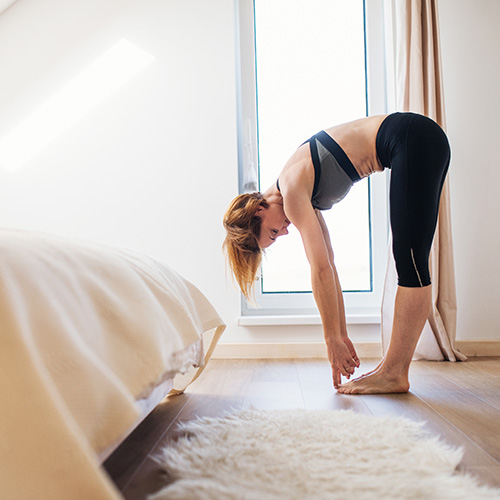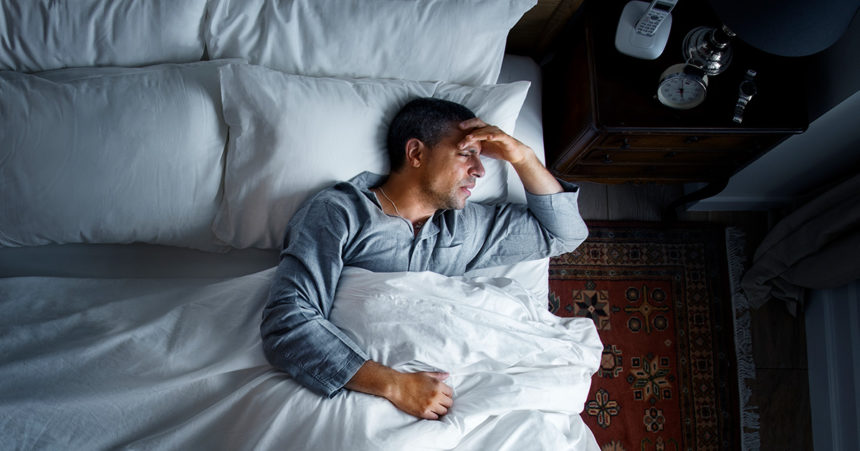We are currently experiencing a historical moment worthy of the last plague epidemic in the 14th century. And even though SARS-cov-2 is not nearly as deadly as the plague bacillus, it is still a shock to all of our landmarks. In regards to the confidence in our health care system, our economic future or the global balance, our brains are currently facing many uncertain, unknown and potentially threatening factors and are in total loss of control. And uncertainty, novelty, threat and loss of control are the four major and universal stressors!
The stress this carries will invariably affect the quality of our sleep. Indeed, stress hormones are also awakening hormones, so it is logical that our sleep gets difficult to settle and that it is less deep than usual. In other words: our brain is in a state of maximum alert and keeps us awake to face the enemy.
The important thing now to decrease our stress level and increase the quality of our sleep is to take control back over this situation. So let’s look at what we can directly have an influence on during the health crisis.
During the day, we can already organize ourselves to increase this control:

- Have a daily routine despite confinement and despite teleworking or not working. Get up at the same time every day and also have your meals at set times. If you are teleworking, have a well defined workspace that you leave regularly for coffee breaks, stretching, etc. and close it up at the end of the day.
- Try to have as much daylight as possible, as daylight is essential for adjusting our biorhythm. Even on an overcast day, about 20 minutes a day of outside light works wonders.
- Practice daily physical activity. Do weight-lifting or stretching exercises indoors, go for walks, light jogging or bike rides outdoors while respecting the rules of social distancing and prohibition of grouping. Physical exercise has a positive effect on your mental state and at the same time makes you physically tired, which contributes to a better quality of sleep.
- Don’t spend the whole day in your pajamas on your bed or sofa. The more naps you take during the day, the less you will sleep well at night!
- Avoid coffee, cigarettes, tea, coke and other excitements after 4 p.m.
- Get involved in whatever you wish! It keeps your mind busy and does good to your subconscious because being useful is part of the solution to the problem and hence gives us control over the situation.
- Learn how to put things into perspective: you are in your comfortable home, the fridge is full of food, you have enough to distract you and you have access to health care!
At bedtime, a few little tricks can make it easier to fall asleep:

- Adopt a bedtime ritual. Turn off all electronic devices at least one hour before bedtime. The blue light emitted by these devices reduces the secretion of melatonin, which is essential for falling asleep. Installing a ritual such as a cup of herbal tea, a good book, soothing music or a sophrology exercise are all things that signal to your brain that it can disconnect.
- Make a habit of watching the news in the morning rather than in the evening when everything seems even more threatening. Also know how to balance the amount of information and the sources of that information. Surf for 30 minutes a day on official and factual sites that do not add to the general anxiety. For example, the Center for Disease Control, the World Health Organization, the Robert Koch Institute, the Johns Hopkins University or the World in Data.
- Don’t overdo it with alcohol. It is certainly a sleep inducer, but it greatly diminishes the quality of sleep. Apart from that, drinking more than 1-2 glasses a day is very harmful to your health.
- Make your environment conducive to sleep. Your bedroom should be quiet, dark and cool, with the best temperature for sleeping being around 16°C.
If your sleep problems persist, do not hesitate to call your doctor and ask for advice.
If you feel that your anxiety level is rising, do not hesitate to contact one of the help lines listed on our website to discuss the matter.


